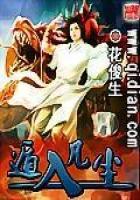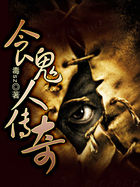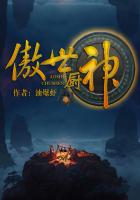"There, again, you allow your dictionary and your priest to mislead you. These terms, when used by a Russian, cover much more than we understand by them, and those who use them most frequently have generally a special tenderness for all kinds of malefactors. In the old times, malefactors were popularly believed to be bad, dangerous people; but it has been lately discovered that this is a delusion. A young proprietor who lives not far off assures me that they are the true Protestants, and the most powerful social reformers! They protest practically against those imperfections of social organisation of which they are the involuntary victims. The feeble, characterless man quietly submits to his chains; the bold, generous, strong man breaks his fetters, and helps others to do the same. A very ingenious defence of all kinds of rascality, isn't it?"
"Well, it is a theory that might certainly be carried too far, and might easily lead to very inconvenient conclusions; but I am not sure that, theoretically speaking, it does not contain a certain element of truth. It ought at least to foster that charity which we are enjoined to practise towards all men. But perhaps 'all men'
does not include publicans and sinners?"
On hearing these words Karl Karl'itch turned to me, and every feature of his honest German face expressed the most undisguised astonishment. "Are you, too, a Nihilist?" he inquired, as soon as he had partially recovered his breath.
"I really don't know what a Nihilist is, but I may assure you that I am not an 'ist' of any kind. What is a Nihilist?"
"If you live long in Russia you'll learn that without my telling you. As I was saying, I am not at all afraid of the peasants citing me before the justice. They know better now. If they gave me too much trouble I could starve their cattle."
"Yes, when you catch them in your fields," I remarked, taking no notice of the abrupt turn which he had given to the conversation.
"I can do it without that. You must know that, by the Emancipation Law, the peasants received arable land, but they received little or no pasturage. I have the whip hand of them there!"
The remarks of Karl Karl'itch on men and things were to me always interesting, for he was a shrewd observer, and displayed occasionally a pleasant, dry humour. But I very soon discovered that his opinions were not to be accepted without reserve. His strong, inflexible Teutonic nature often prevented him from judging impartially. He had no sympathy with the men and the institutions around him, and consequently he was unable to see things from the inside. The specks and blemishes on the surface he perceived clearly enough, but he had no knowledge of the secret, deep-rooted causes by which these specks and blemishes were produced. The simple fact that a man was a Russian satisfactorily accounted, in his opinion, for any kind of moral deformity; and his knowledge turned out to be by no means so extensive as I had at first supposed. Though he had been many years in the country, he knew very little about the life of the peasants beyond that small part of it which concerned directly his own interests and those of his employer. Of the communal organisation, domestic life, religious beliefs, ceremonial practices, and nomadic habits of his humble neighbours, he knew little, and the little he happened to know was far from accurate. In order to gain a knowledge of these matters it would be better, I perceived, to consult the priest, or, better still, the peasants themselves. But to do this it would be necessary to understand easily and speak fluently the colloquial language, and I was still very far from having, acquired the requisite proficiency.
Even for one who possesses a natural facility for acquiring foreign tongues, the learning of Russian is by no means an easy task.
Though it is essentially an Aryan language like our own, and contains only a slight intermixture of Tartar words,--such as bashlyk (a hood), kalpak (a night-cap), arbuz (a water-melon), etc.--it has certain sounds unknown to West-European ears, and difficult for West-European tongues, and its roots, though in great part derived from the same original stock as those of the Graeco-
Latin and Teutonic languages, are generally not at all easily recognised. As an illustration of this, take the Russian word otets. Strange as it may at first sight appear, this word is merely another form of our word father, of the German vater, and of the French pere. The syllable ets is the ordinary Russian termination denoting the agent, corresponding to the English and German ending er, as we see in such words as--kup-ets (a buyer), plov-ets (a swimmer), and many others. The root ot is a mutilated form of vot, as we see in the word otchina (a paternal inheritance), which is frequently written votchina. Now vot is evidently the same root as the German vat in Vater, and the English fath in father. Quod erat demonstrandum.
All this is simple enough, and goes to prove the fundamental identity, or rather the community of origin, of the Slav and Teutonic languages; but it will be readily understood that etymological analogies so carefully disguised are of little practical use in helping us to acquire a foreign tongue. Besides this, the grammatical forms and constructions in Russian are very peculiar, and present a great many strange irregularities. As an illustration of this we may take the future tense. The Russian verb has commonly a simple and a frequentative future. The latter is always regularly formed by means of an auxiliary with the infinitive, as in English, but the former is constructed in a variety of ways, for which no rule can be given, so that the simple future of each individual verb must be learned by a pure effort of memory. In many verbs it is formed by prefixing a preposition, but it is impossible to determine by rule which preposition should be used. Thus idu (I go) becomes poidu; pishu (I write) becomes napishu; pyu (I drink) becomes vuipyu, and so on.















